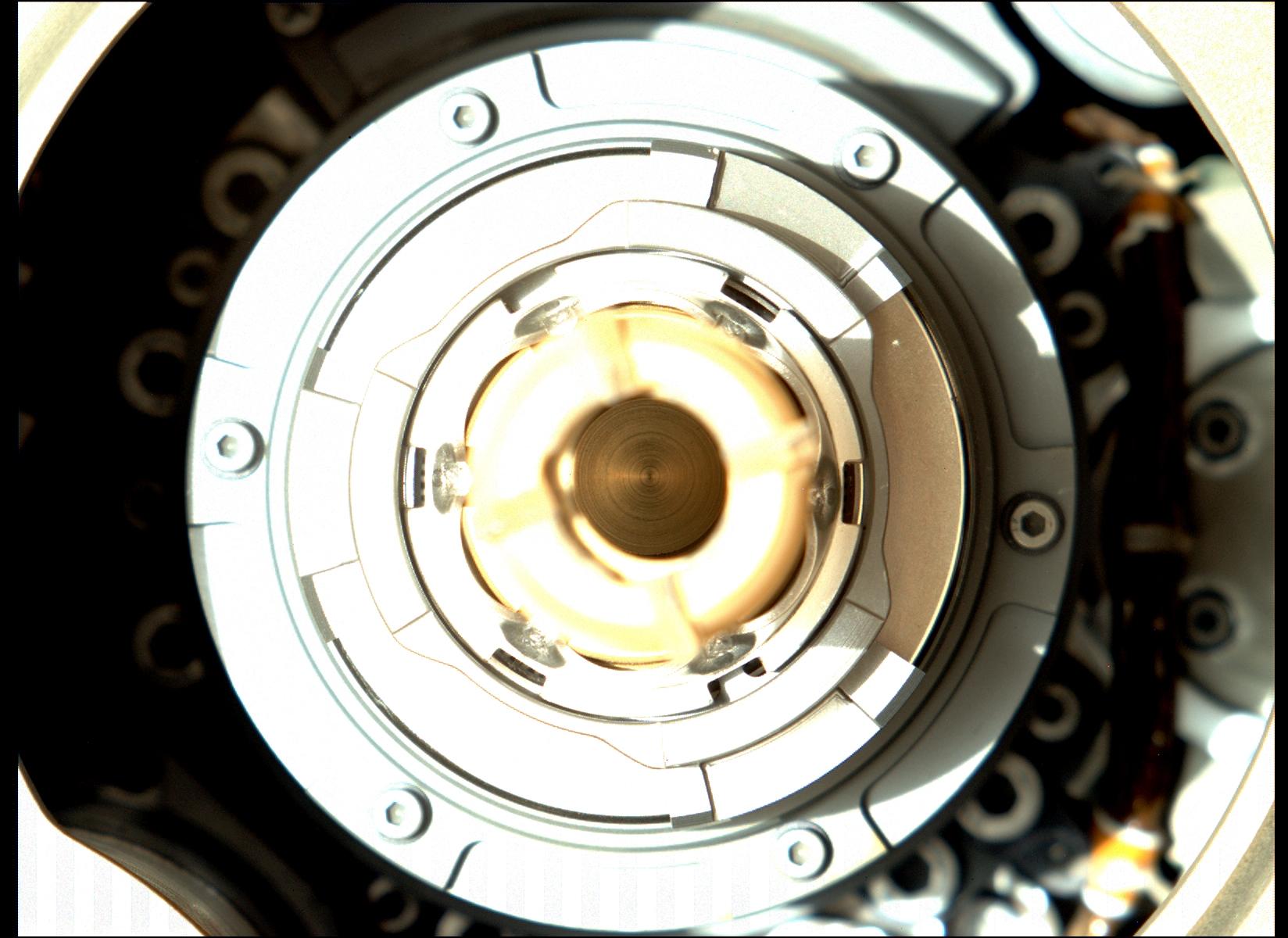
|
Perseverance’s Sample Tube Looks Clean
- Click the image above for a larger view
- Full-Res JPEG (1648 x 1200) (176.9 kB)
- Full-Res TIFF (1648 x 1200) (4.0 MB)
Caption:
This image taken by the Mastcam-Z camera aboard NASA's Perseverance Mars rover on Jan. 20, 2022, shows that the rover successfully expelled the remaining large fragments of cored rock from a sample tube held in the drill at the end of its robotic arm. The sample was originally collected by the rover on Dec. 29, 2021, from a rock the team calls "Issole."
This image has been processed to enhance contrast.
Background Info:
Arizona State University in Tempe leads the operations of the Mastcam-Z instrument, working in collaboration with Malin Space Science Systems in San Diego.
A key objective for Perseverance's mission on Mars is astrobiology , including the search for signs of ancient microbial life. The rover will characterize the planet's geology and past climate, pave the way for human exploration of the Red Planet, and be the first mission to collect and cache Martian rock and regolith (broken rock and dust).
The Mars 2020 Perseverance mission is part of NASA's Moon to Mars exploration approach, which includes Artemis missions to the Moon that will help prepare for human exploration of the Red Planet.
Subsequent NASA missions, in cooperation with ESA (European Space Agency), would send spacecraft to Mars to collect these sealed samples from the surface and return them to Earth for in-depth analysis.
NASA's Jet Propulsion Laboratory in Southern California built and manages operations of the Mars 2020 Perseverance rover for NASA.
For more about Perseverance:
Cataloging Keywords:
| Name | Value | Additional Values |
|---|---|---|
| Target | Mars | |
| System | ||
| Target Type | Planet | |
| Mission | Mars 2020 | |
| Instrument Host | Perseverance | |
| Host Type | Rover | |
| Instrument | Mastcam-Z | |
| Detector | ||
| Extra Keywords | Dust, Moon | |
| Acquisition Date | ||
| Release Date | 2022-01-21 | |
| Date in Caption | 2021-12-29 | 2022-01-20 |
| Image Credit | NASA/JPL-Caltech/ASU/MSSS | |
| Source | photojournal.jpl.nasa.gov/catalog/PIA25073 | |
| Identifier | PIA25073 | |
